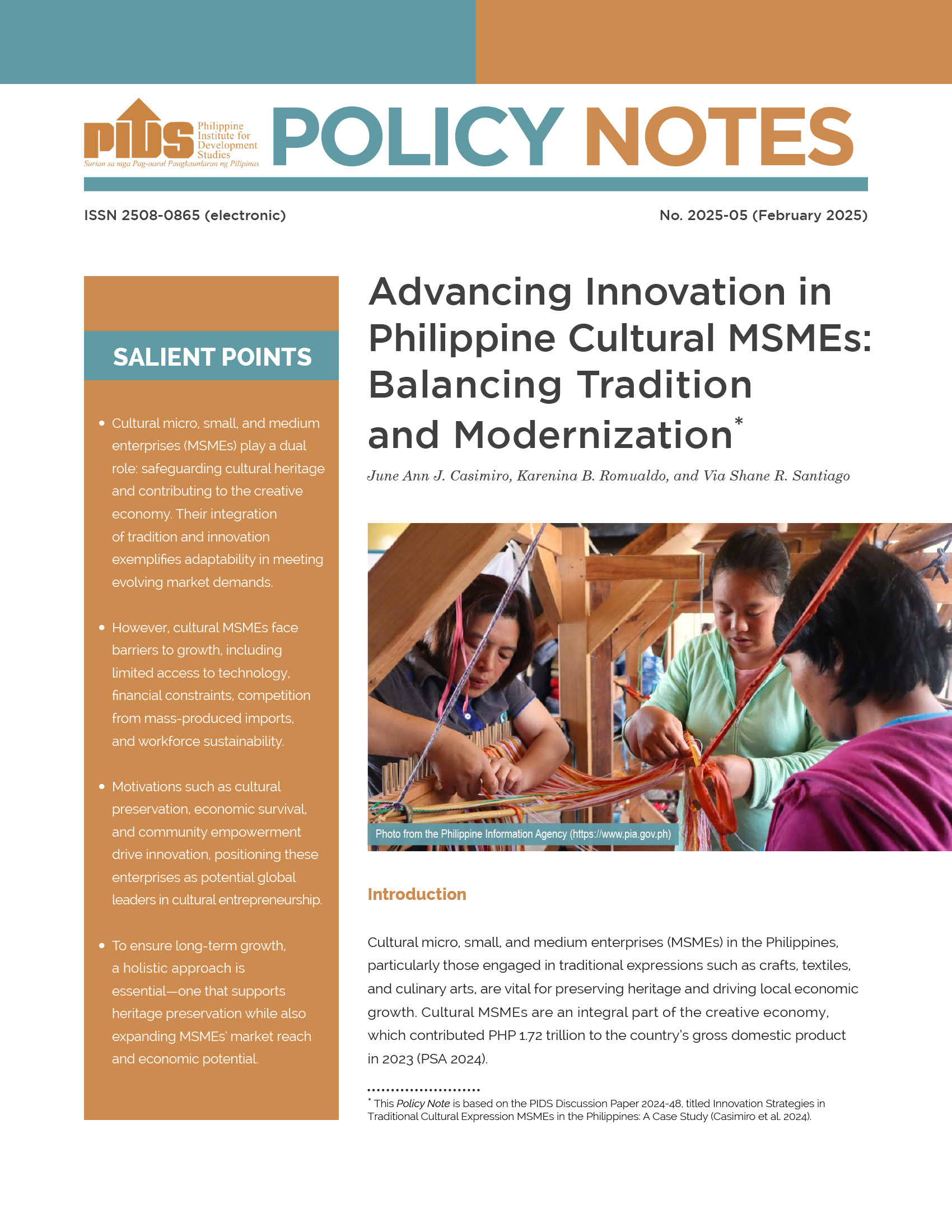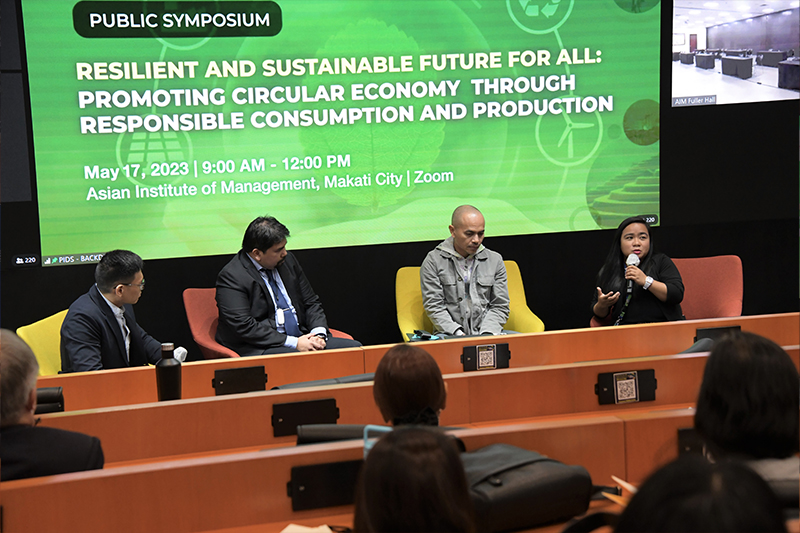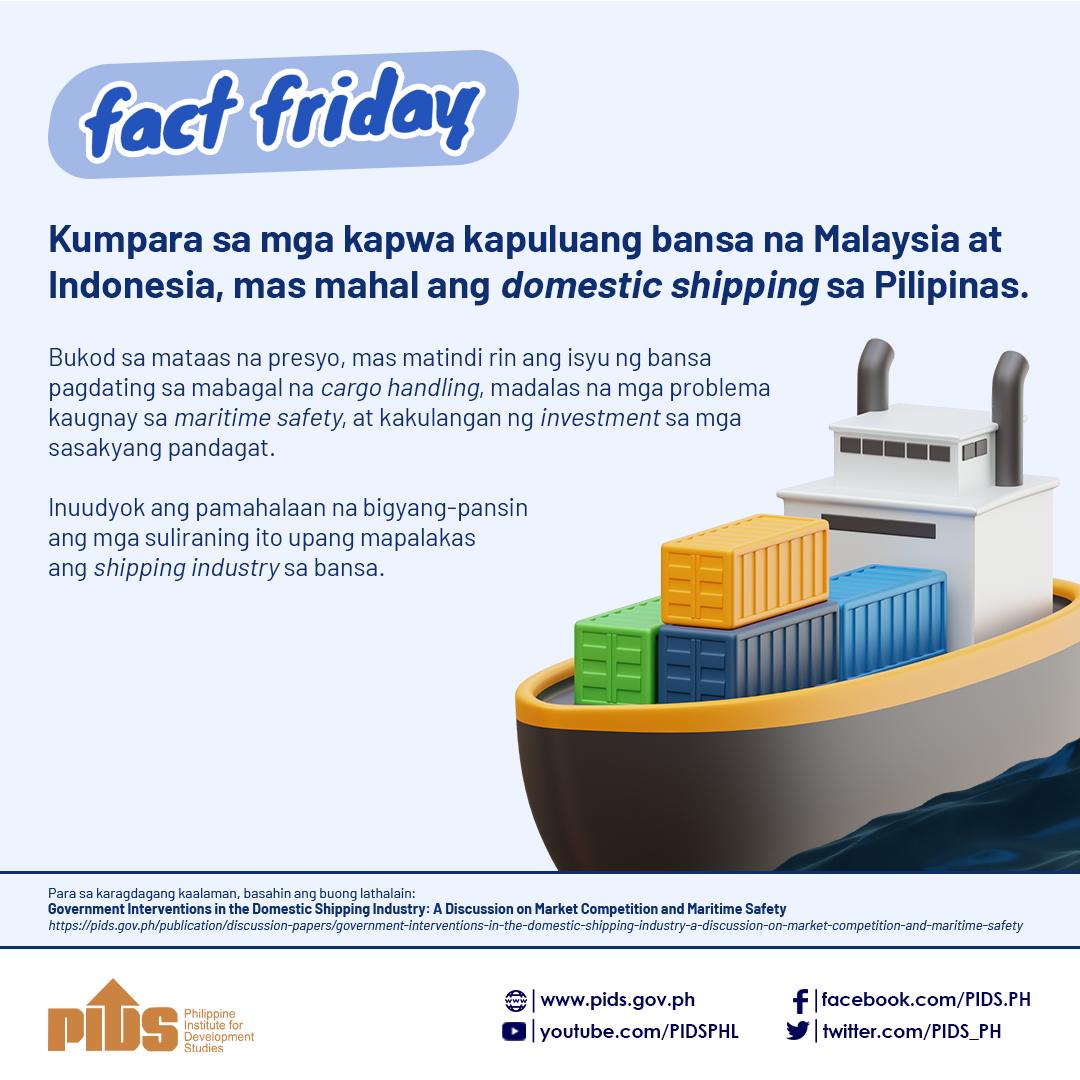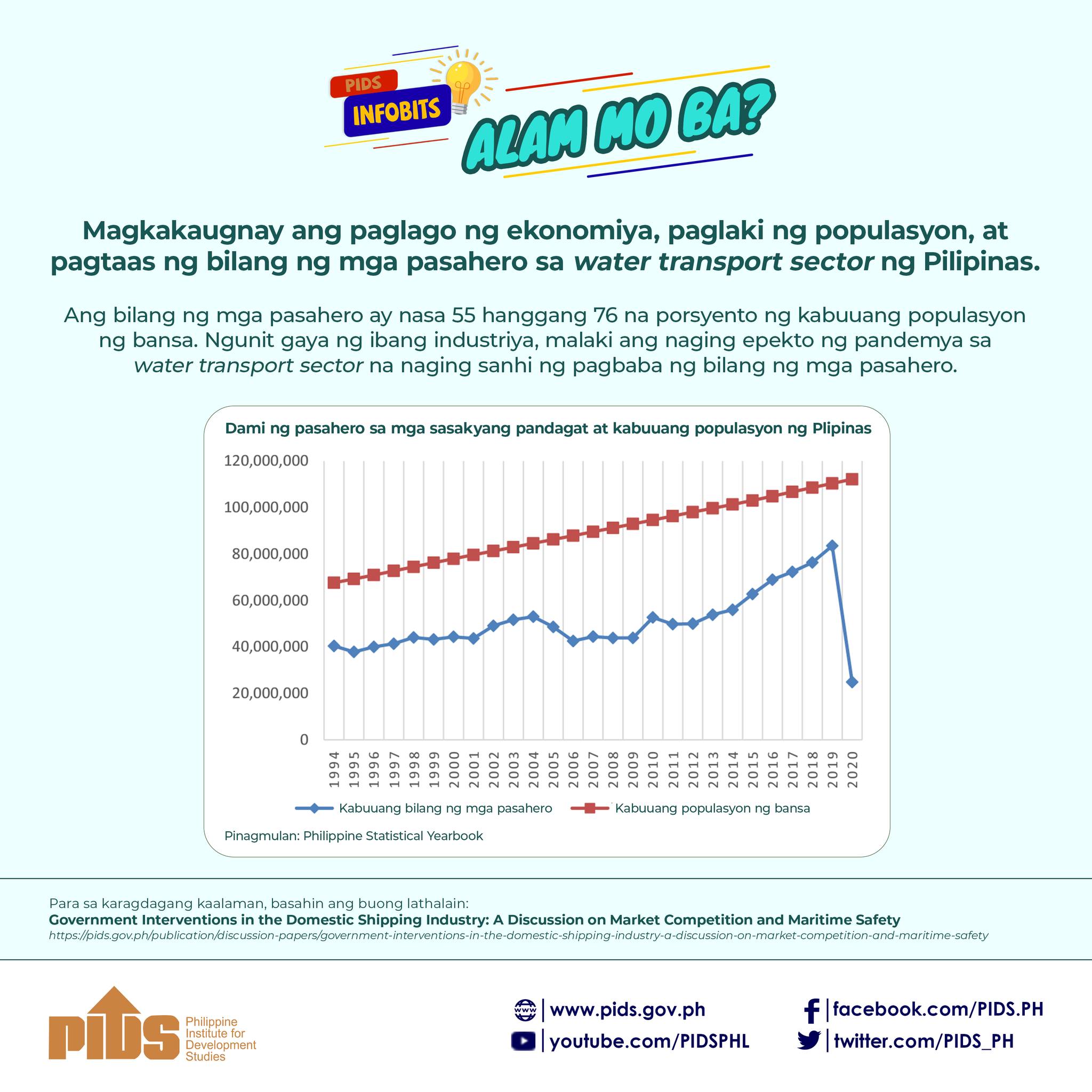The Philippine Institute for Development Studies (PIDS) and the Department of Trade Industry Board of Investments (DTI-BOI) convened the Inception Workshop on the Formulation of the Manufacturing Industry Roadmap on October 19, 2012.
In January this year, DTI-BOI launched the Industry Roadmap Project in partnership with the private sector to craft sectoral roadmaps that would cover industry vision, goals and targets possibly till 2030 to serve as basis for the formulation of the Comprehensive National Industrial Strategy. The private sector takes the lead in determining the course of development of the industry while the government serves as `catalyst`, `facilitator`, and `enabler`.
To realize these goals, the DTI-BOI tapped the expertise of PIDS to formulate the Comprehensive National Industrial Strategy that would integrate the sectoral roadmaps and link the overall manufacturing roadmap with other economic sectors such as agriculture, fishing, forestry, mining, construction, and services.
The Institute, led by Senior Research Fellow Rafaelita Aldaba, crafted an analytical framework to be adopted in integrating the various sectoral roadmaps submitted to DTI-BOI. The framework will cover the following elements: (i) dynamically growing industries and those with latent comparative advantage, (ii) most binding constraints to industrial upgrading, and (iii) government action to remove constraints. The Inception Workshop was held to bring together various stakeholders from business, government, academe, labor, and civil society to present the framework and use it to identify the most binding constraints preventing industrial and technological upgrading and propose alternative measures to address these constraints and transform manufacturing into a major source of growth and employment.
The workshop was attended by various business leaders and government officials including DTI Sec. Gregory L. Domingo, Usec. Adrian S. Cristobal, Jr., National Economic and Development Authority (NEDA) Deputy Director-General Emmanuel F. Esguerra, and PIDS President Josef T. Yap, among others.
Domingo commended the partnership between the government and the business sector in organizing the event. He said the number of industries volunteering to craft their own roadmaps has increased. This is a bellwether, according to Domingo, to the positive reception and support by the private sector for the project which is expected to be completed in the first quarter of 2013.
Meanwhile, Aldaba said the roadmap project is crucial for faster and more inclusive and sustainable growth as well as for employment generation. The government will adopt a growth-oriented strategy to improve productivity growth, increase investment, promote export diversification and facilitate structural transformation. This growth oriented action by the government is a major way to address the `progeria` that most manufacturing industries currently suffer from.
In January this year, DTI-BOI launched the Industry Roadmap Project in partnership with the private sector to craft sectoral roadmaps that would cover industry vision, goals and targets possibly till 2030 to serve as basis for the formulation of the Comprehensive National Industrial Strategy. The private sector takes the lead in determining the course of development of the industry while the government serves as `catalyst`, `facilitator`, and `enabler`.
To realize these goals, the DTI-BOI tapped the expertise of PIDS to formulate the Comprehensive National Industrial Strategy that would integrate the sectoral roadmaps and link the overall manufacturing roadmap with other economic sectors such as agriculture, fishing, forestry, mining, construction, and services.
The Institute, led by Senior Research Fellow Rafaelita Aldaba, crafted an analytical framework to be adopted in integrating the various sectoral roadmaps submitted to DTI-BOI. The framework will cover the following elements: (i) dynamically growing industries and those with latent comparative advantage, (ii) most binding constraints to industrial upgrading, and (iii) government action to remove constraints. The Inception Workshop was held to bring together various stakeholders from business, government, academe, labor, and civil society to present the framework and use it to identify the most binding constraints preventing industrial and technological upgrading and propose alternative measures to address these constraints and transform manufacturing into a major source of growth and employment.
The workshop was attended by various business leaders and government officials including DTI Sec. Gregory L. Domingo, Usec. Adrian S. Cristobal, Jr., National Economic and Development Authority (NEDA) Deputy Director-General Emmanuel F. Esguerra, and PIDS President Josef T. Yap, among others.
Domingo commended the partnership between the government and the business sector in organizing the event. He said the number of industries volunteering to craft their own roadmaps has increased. This is a bellwether, according to Domingo, to the positive reception and support by the private sector for the project which is expected to be completed in the first quarter of 2013.
Meanwhile, Aldaba said the roadmap project is crucial for faster and more inclusive and sustainable growth as well as for employment generation. The government will adopt a growth-oriented strategy to improve productivity growth, increase investment, promote export diversification and facilitate structural transformation. This growth oriented action by the government is a major way to address the `progeria` that most manufacturing industries currently suffer from.












